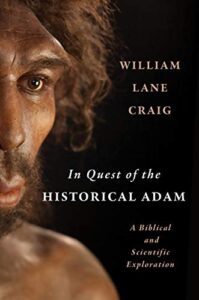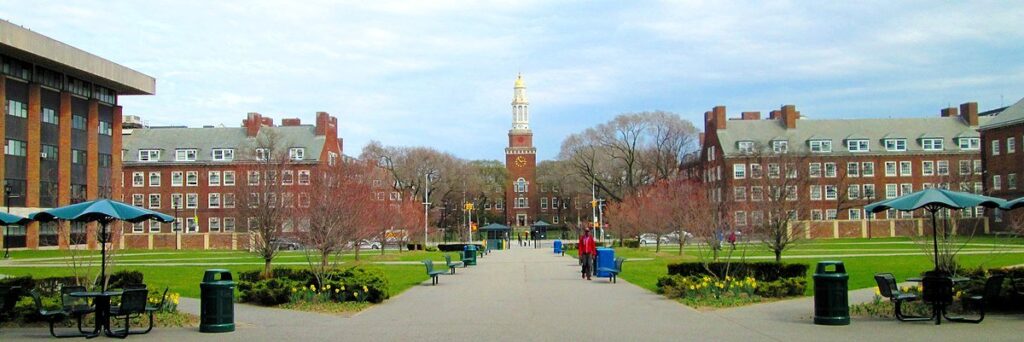
But I am getting ahead of myself. In the first part of the book, Dr. Craig spends a lot of time comparing the Genesis account to creation myths of the Ancient Near East (ANE). He claims that there are many parallels between the ANE myths and the Genesis account. To demonstrate this “fact,” he discusses a lot of those myths. The problem is, they sound nothing at all like the creation account of Genesis. Consider the following:
In the Sumerian myth Enki and Ninmah 24-37 we read that Enki enjoins the mother goddess Namma to knead clay so that the birth-goddesses could nip off pieces with which she could fashion human beings. How is the story of God’s forming man from the dust of the earth in Gen 2 functionally distinct from such a story simply in virtue of the fact that Yahweh is the sole diety? (Chapter 3)
I don’t know about you, but I find quite a bit of functional distinction. For example, Yahweh had actually made the dust. There is no indication that anyone in the Sumerian myth made the clay. This is a huge distinction. Yahweh is the Creator of everything in the Genesis account. In the ANE myths that Dr. Craig discusses, there is no sense of the gods (or a single god) being the creator of everything. Also, people have experience using clay to make things. The Sumerian myth makes it sound like the gods are doing typical human activities, but they just have some magic added in. That’s not the way the Genesis account reads at all. Nevertheless, based on what I would call very questionable “similarities” Dr. Craig decides that the Genesis account has all the trappings of a myth. However, since it does have historical overtones, he says that the Genesis account belongs in a category called “Mytho-History.”
Of course, he takes great pains to reiterate what C.S. Lewis made abundantly clear quite some time ago: The term “myth” does not mean the story is false. Myths can be used to teach deep truths. It just means that the setting and many of the details aren’t meant to be taken literally. In Matthew 13:3-9, for example, Jesus tells the story of a sower who is planting seeds. He doesn’t intend for you to believe this sower actually existed. Instead, he wants you to hear the truth in his story. In the same way, the Genesis creation account is mythical but teaches a very important truth.
Now, even though Dr. Craig thinks the Genesis account is mythical, he says we have to take its historical overtones seriously, especially when we read the New Testament. In the book of Romans, Paul writes of Adam as a real, historical person. So based on the New Testament (not the Genesis account), Dr. Craig says that Adam must have actually existed. However, since the Genesis account is mytho-history, we can’t assume that he was created exactly as is discussed in the myth or that Eve was actually made from his rib. The details of the account are mostly mythological; his existence is the important historical element.
With this conclusion, Dr. Craig decides to go searching for Adam using the historical and scientific tools we have at our disposal. Not surprisingly, he slavishly follows the scientific consensus, up to a crucial point. Thus, as far as Dr. Craig is concerned, the earth is billions of years old, biological evolution happened essentially as the High Priests of Science have proclaimed, and the standard tales told by anthropologists are true. Based on all this, Dr. Craig concludes:
Adam, then, may be plausibly identified as a member of Homo heidelbergensis living perhaps >750 kya. He could even have lived in the Near East in the biblical site of the Garden of Eden – though vastly earlier than usually thought, of course. (Chapter 12) [Note: kya means thousand years ago]
Of course, the basic concept here is neither new nor surprising. Lots of Christians have decided to accept the scientific consensus and say that God used evolution to produce the human race. However, most who accept this view think that Adam and Eve are mythological beings; they didn’t actually exist in history. Dr. Craig comes to a different conclusion. How? By being utterly inconsistent.
He accepts the scientific consensus on the age of the earth, biological evolution, anthropology, etc., etc. However, he then throws scientific consensus out of the window by writing:
Such an identification is fully consistent, both temporally and geographically, with the data of population genetics, which does not rule out the existence of two heterozygous, sole genetic progenitors of the human race earlier than 500 kya. (Chapter 13)
What does he use to back up this idea? A reference to the journal BIO-Complexity, which is well outside the scientific consensus! Now don’t get me wrong. I have nothing against that journal. In fact, I think an incredibly important genetic study can be found in it.
Here’s the problem: The scientific consensus says that there is simply no way evolution could produce the genetics of the human race from just two people. At minimum, it needed to start with a group of 2,250 people. However, since Dr. Craig wants to believe that Adam existed in history and is the father of the human race, he must believe that the scientific consensus is invalid on this point. As a result, he looks outside the scientific consensus to find science that backs up his view.
Now to be sure, he tries to justify this view by reporting that a few consensus-driven scientists (like S. Joshua Swamidass) say that if you push Adam’s existence far enough back in history (more than 500,000 years), then science cannot rule out the possibility that he and Eve could be the genetic origin of all humanity. However, the vast majority of geneticists would disagree with that. Thus, it is still an idea that is well outside the scientific consensus. Indeed, S. Joshua Swamidass himself doesn’t agree with it.
As anyone who reads this blog knows, I have no problem with going against the scientific consensus. Indeed, nearly every important scientific advance that has happened was the result of doing just that. What I am saying is that if Dr. Craig has the courage to question the scientific consensus when it comes to the genetics of the human race, perhaps he could find the courage to question the scientific consensus when it comes to other issues, such as the age of the earth and biological evolution. If he does that, he might find a much more satisfying way to believe in a historical Adam.
NOTE (added 8/1/2023): Swamidass suggested this link to help clarify the issue.


